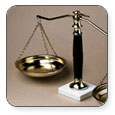|
|
bankruptcy practice
Bankruptcy is a Federal Law that was
created to help people when they experience debt
problems. Although there are different forms of
Bankruptcy, the two most common for individuals or small
businesses are Chapter 7 and Chapter 13. Both Chapter 7
and Chapter 13 are forms of Bankruptcy. However, each
one addresses a different situation.
Chapter 7 is the form of Bankruptcy where we file
a Petition in Federal Court and have a Federal
Bankruptcy Judge issue an Order eliminating your
dischargeable unsecured debts. Unsecured debts are those
debts that are not secured by collateral, such as most
credit cards and medical bills. In most situations, your
unsecured debts will be eliminated in a Chapter 7
Bankruptcy.
Chapter 13 is the form of Bankruptcy where we are
able to restructure your debts by consolidating all of
your debts into a repayment plan in Bankruptcy Court.
Your monthly payment is based upon what you can afford
to pay and is monitored by an appointed Trustee. All of
your debts are placed in the Chapter 13 and are paid
according to what type of legal status they have. Some
debts get paid in full, while others do not and some
debts are paid with interest, while others are not. A
Chapter 13 Bankruptcy can last from three to five years.
At the end of the Chapter 13, your debts will be
discharged or eliminated.
Two of the most common reasons for filing a Chapter 13
Bankruptcy are someone falling behind on vehicle and
house payments and are facing repossession or
foreclosure. In most situations, your entire vehicle and
back/delinquent house payments may be paid through your
Chapter 13 Bankruptcy.
Procedure... When you come into our office and
complete the necessary paperwork, we prepare and file
your Chapter 7 or Chapter 13 Petition in Federal Court.
Upon filing, the Court issues a Federal Court Order
called an Automatic Stay, which protects you and your
property against collection efforts. The Automatic Stay
prohibits creditors from making any attempt to collect
money from you or take property from you. Not only will
it stop harassing telephone calls from debt collectors,
it will stop lawsuits and stop the repossession of
vehicles or the foreclosure of a house.
This a general description of Chapter 7 and Chapter 13
Bankruptcy. For more specific questions about Bankruptcy
or what happens in Court, please contact our office . We
will be more than happy to speak with you by telephone
or schedule a complimentary office consultation.
|

